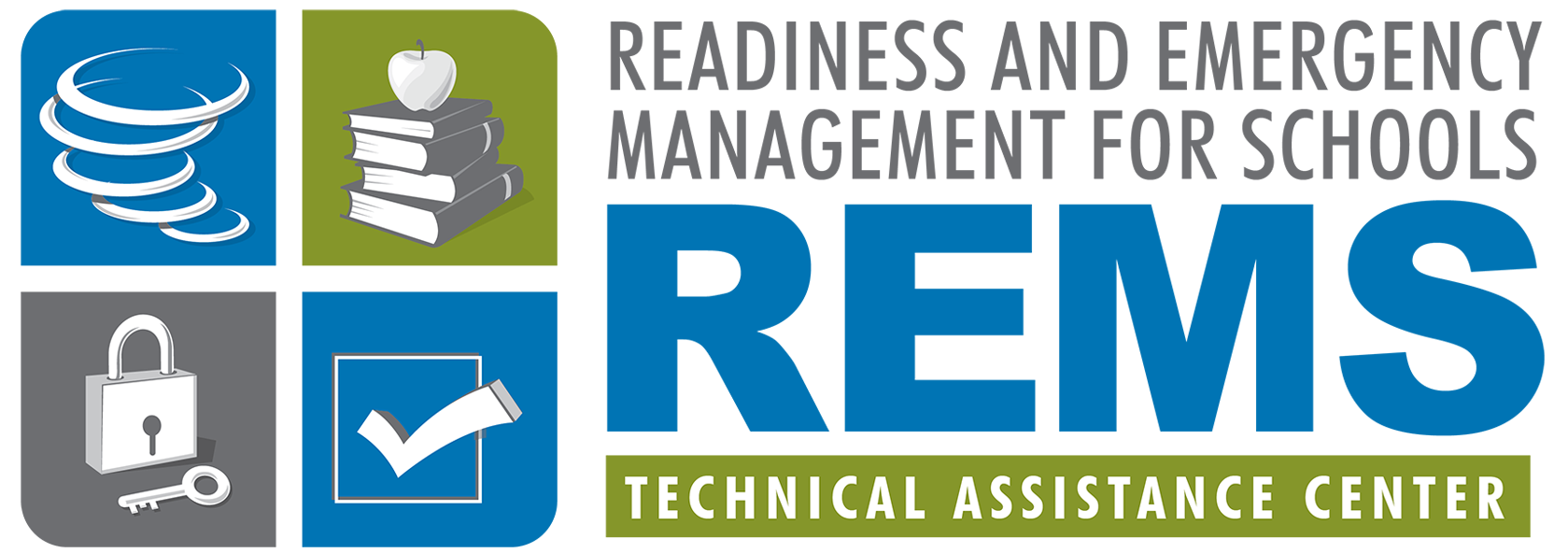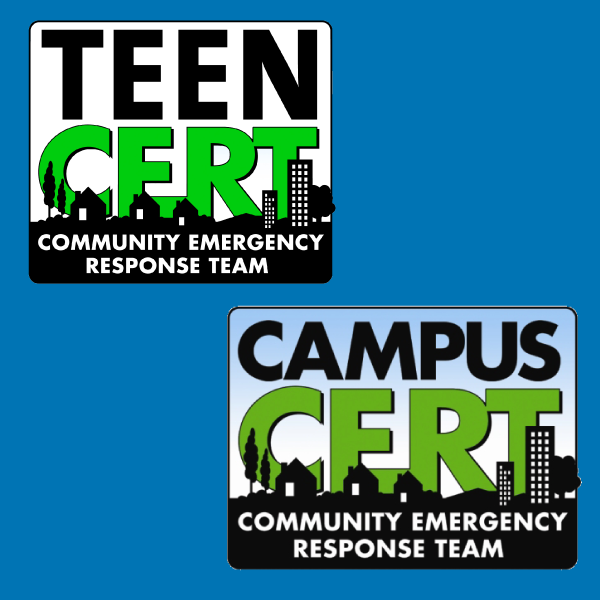Share Your Feedback
The REMS TA Center seeks your feedback to ensure that the Website is continually enhanced to meet your needs.
COMMUNITY EMERGENCY RESPONSE TEAM 1
The Community Emergency Response Team (CERT) program is a locally implemented initiative that trains volunteers with basic emergency preparedness and response skills. This includes light search and rescue, fire safety, medical operations, and incident command. CERT aims to organize teams of volunteers to serve as a resource in the event of an emergency — by providing assistance to members of their community before first responders arrive or by participating in basic response activities before, during, and after incidents. By implementing CERT, education agencies can
- Enhance the preparedness capacity of their education agency;
- Empower students, faculty, staff, and administrators to partake in emergency response;
- Facilitate individual, student, and family preparedness;
- Integrate their capabilities with community partners, and reinforce whole community planning;
- Create a culture of preparedness at their education agency through a formal and national program.
Types of CERT Programs
CERT can be implemented by local governments, community organizations, volunteer groups, high schools, institutions of higher education (IHEs), and private businesses. The CERT curriculum is customized for education agencies and offered via Teen CERT and Campus CERT, which are described below. Education agencies should coordinate their Teen CERT or Campus CERT program with the CERT program in the local community.
Teen CERT
High school students are trained in basic emergency preparedness and response through Teen CERT. It may be offered as part of the school day or through after-school, extracurricular clubs and lends itself to science, technology, engineering, and math initiatives as well as career and technical education initiatives. At the conclusion of the training, students are eligible to earn professional certification, which helps prepare them for a career as a first responder or for further studies. Some schools integrate components of Teen CERT into applicable high school classes, such as fire and emergency medical services training and first aid and CPR. Furthermore, Teen CERT can help support the school emergency operations plan.
Campus CERT
IHE students, faculty, and staff are trained in basic emergency preparedness and response through Campus CERT. While it is recommended that the IHE department responsible for campus emergency management or campus public safety take the lead in or partner in leading the implementation of Campus CERT, any member of the campus community may start a Campus CERT program. Some IHEs implement a train-the-trainer program for students, who then train students on Campus CERT. This can help prepare them for a career as a first responder or emergency manager. Some IHEs also or only offer Campus CERT training to staff and faculty, as well as refresher courses to ensure that skills are maintained. Furthermore, Campus CERT can help support the higher ed emergency operations plan.
Implementation Resources
CERT
Resources
- Community Emergency Response Team Web Page
U.S. Department of Homeland Security, Federal Emergency Management Agency
Tools
- Get Involved With CERT Web Page
U.S. Department of Homeland Security, Federal Emergency Management Agency
Trainings
-
CERT Train-the-Trainer Course Instructor Guide
U.S. Department of Homeland Security, Federal Emergency Management Agency -
IS-315.A: CERT and the Incident Command System (ICS) Online Course
U.S. Department of Homeland Security, Federal Emergency Management Agency, Emergency Management Institute -
IS-317.A: Introduction to Community Emergency Response Team (CERTs) Online Course
U.S. Department of Homeland Security, Federal Emergency Management Agency, Emergency Management Institute
Teen CERT
Guidance
-
Teen CERT: Launching and Maintaining the Training Guide
U.S. Department of Homeland Security, Federal Emergency Management Agency
Resources
- Teen CERT Web Page
U.S. Department of Homeland Security, Federal Emergency Management Agency
Tools
-
Teen CERT Web Chat Forum
REMS TA Center -
Teen Community Emergency Response Team (CERT) Toolkit
REMS TA Center
Campus CERT
Guidance
-
Campus CERT Starter Guide
U.S. Department of Homeland Security, Federal Emergency Management Agency
Resources
- Teen CERT Web Page
U.S. Department of Homeland Security, Federal Emergency Management Agency
Trainings
-
CERT Train-the-Trainer Annex for Campus CERT Instructor Guide
U.S. Department of Homeland Security, Federal Emergency Management Agency



